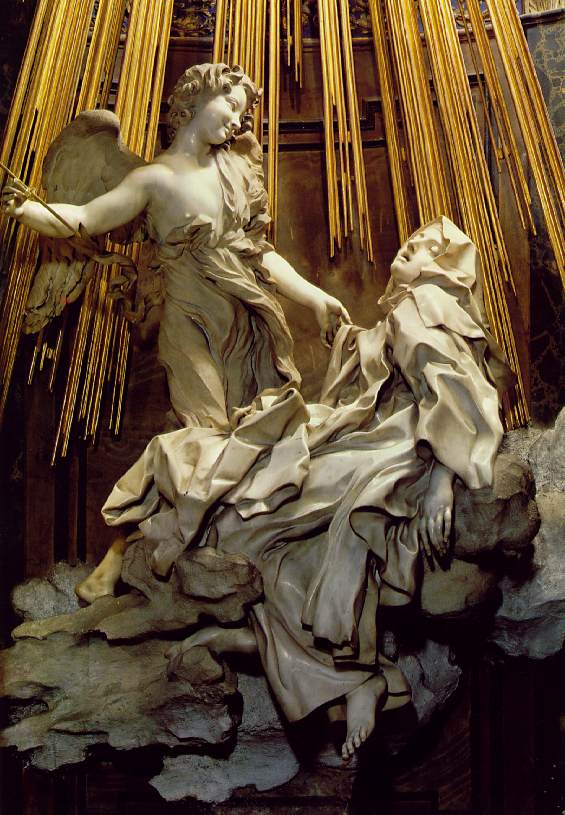Here’s something I’ve been chewing on all week.
Last Sunday, we attended a Mass in which the music was provided by a youth group, God bless them. Except they were not so great. Please take drum kits out of churches. It just doesn’t work. Especially when the drummer is twelve.
The greying leader of the group was perhaps a veteran of the Charismatic movement, for the Communion hymn emerged from those years..Humble thyself in the sight of the Lord…and he…will lift you up…higher and higher..etc. Which was okay. Except for the drums.
No, the song that irked was that which was sung at the Offertory, I believe. I sat there listening to it, feeling kind of creeped out by it, then went home and Googled it, and discovered it’s one of the most popular praise songs out there, having won awards and such. The story behind its composition is tragic, making me feel even more churlish for reacting against it. Perhaps you’ve heard of it or sung it – it’s called Breathe:
This is the air I breathe
This is the air I breathe
Your holy presence living in me
This is my daily bread
This is my daily bread
Your very word spoken to me
And I, I’m desperate for you
And I, I’m lost without you
This is the air I breathe
This is the air I breathe
Your holy presence living in me
This is my daily bread
This is my daily bread
Your very word spoken to me
I’m not intending for this to be one of the innumerable full-blown posts on Liturgical Music Today (by the way, there is a very good and civil discussion of liturgical music in this post at NLM, the subject of which is some recent hints that some Catholic composers in the popular mode are attempting to reposition themselves and their work. A comment thread that then raises good questions about the power of Catholic liturgical music publishers. Anyway.) ….but more on this particular song. I thought it was terrible, and I felt uncomfortable even thinking about singing it..it was..invasive. It was putting words in my mouth and heart.
But…isn’t that what happens when we pray and sing aloud like this? Aren’t we allowing others’ words to speak for us? Isn’t that the point of liturgical prayer, to join our prayers to the broader prayer of the Church and speak as one? Yah, but this was different, and I am having a devil of a time trying to figure out why. Others have written on this sensibility in contemporary praise music – some even focusing on this particular song.
S.M. Hutchens wrote a piece in Touchstone a couple of years ago about the roots of "Romantic Worship" which then inspired a Get Religion post and another, in which "Breathe" is cited in one of the comments:
The chorus of this pop song — in which the contraction “I’m” is held for about five seconds followed by the words “desperate for you” — is already a classic of the new erotic-worship genre.
(These posts are from 2004, but I don’t know how "new" it was – back in the late 70’s, Amy Grant was being criticized for recording songs that could, in the opinion of some, double as secular love songs with a few pronoun changes here and there.)
But then Mark Byron argued back:
Let’s look at Breathe, with its chorus of "I’m lost without you…I’m desperate for you." It only sounds erotic for we don’t have a vocabulary for a deep devotional love for God.
We could use a quick review of the three Greek words for love;
(1) philios, "brotherly love," which gives us the root for philanthropy and Philadelphia
(2) eros, "sexual love/lust," which we get erotic and erogenous from
(3) agape, "unconditional love" which doesn’t translate into English well and has no spin-offs that I know of.We’re supposed to agape God, but that’s something that we’re only able to do with the help of the Holy Spirit. John 21:15-19 has Jesus ask Peter twice "do you agape me?" and gets Peter answering back "Yes, Lord, you know that I philios you." The third time, Jesus asks "do you philios me?" prompting the desired "Lord, you know all things; you know that I agape you."
Given that we don’t have a good word for agape, other than using it as-is within the theological cognoscenti, we’re at a loss to describe it well. To the casual Christian, such sold-out devotion to God seems erotic, since their love of God is more of a lukewarm philios. Given the lack of good agapesque adjectives, we’ll sometimes slip in the erotic adjectives instead.
To put this in a less sexual mode, Psalm 41:1(NIV) comes to mind-
As the deer pants for streams of water,
so my soul pants for you, O God.We’re supposed to desire God and not in a casual way. That’s going to make a lot of people uncomfortable, especially if there more in philios mode with God. A lack of agape that makes people uncomfortable with such lyrics; if you’re walk isn’t that devout, you may want to excuse a lack of devotion by saying that the song sounds too sexy.
Now, we’re not ignoramouses (mice?) around here – we know our Erotic Dimensions of Mysticism and we’ve pondered the Psalms Mark cites. But still…something about Breathe didn’t sit right with me at all in a liturgical setting. And it goes beyond my usual devout wish that everyone would just stop flinging "songs" of wildly different styles into blank spaces during Mass and just start chanting again. I suppose it all comes down to this: confronted with these lyrics, I felt put upon and forced into a mode of expression that I wouldn’t if we were all going to recite Psalm 41.
Is "Breathe" in the tradition of the Song of Solomon, the Psalms and this?

Or is it something else?

